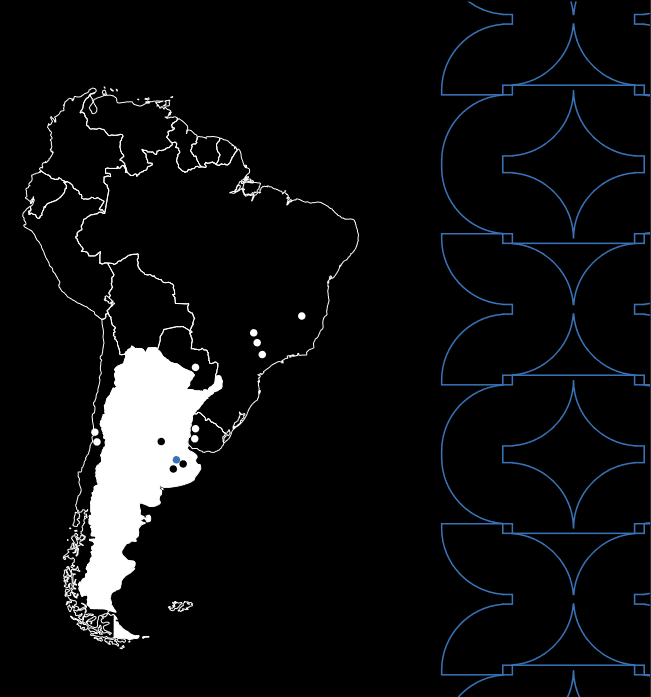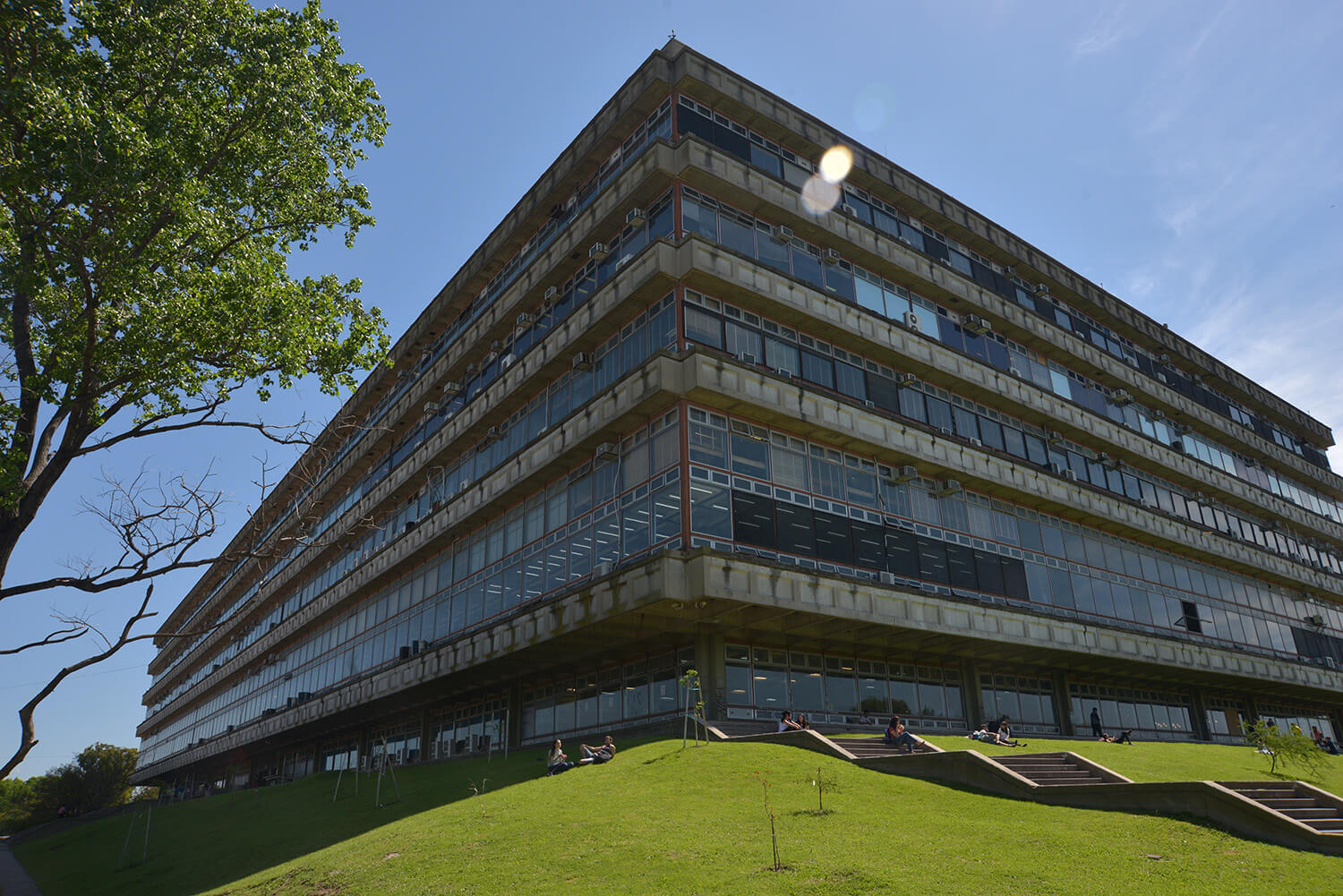

Research center
The Faculty of Exact and Natural Sciences (FCEN) at the University of Buenos Aires is one of the most important scientific centers in Argentina. It hosts researchers from all branches of Exact and Natural Sciences, including Mathematics, Computer Science, Physics, Chemistry, Biology, and Atmospheric Sciences. It consists of 13 departments and several institutes from CONICET (National Scientific and Technical Research Council), providing an ideal environment for interdisciplinary scientific work.


FCEN hosts multiple active research groups in the field of Structural Biology, across various institutes and departments, primarily within the Departments of Inorganic, Analytical, and Physical Chemistry, INQUIMAE, the Department of Biological Chemistry, the Department of Physiology, Molecular Biology and Neuroscience, InstitutoIB3, and the Department of Physics.
FCEN offers diverse graduate and postgraduate courses in the area of Structural Biology, such as Biomolecule Structure and Function, Topics in Physical Chemistry of Biological Systems, School on Molecular Modeling of Biomolecules, Advanced Microscopy, and more.
Postgraduate courses and schools were conducted under the CELFI program: "Topics in Electron Cryomicroscopy and X-ray Crystallography of Proteins'' and "Crystallography in Structural Biology: How and Why to Obtain the Crystal of a Protein?"

Research lines
The Structural Biology research groups at FCEN are dedicated to:
1) Structural Bioinformatics, specifically the development and applications of methods in classical and coarse-grained atomistic approaches, as well as multi scale quantum classical (QM-MM) strategies, structural genomics, and drug design.
2) Using time-resolved spectroelectrochemical techniques based on Raman microscopy, allowing the simultaneous study of dynamics, structure, and kinetics of electron transfer in proteins.
3) Experimental studies and simulations on metalloproteins, such as globins, cytochromes, among other topics.
Instrumentation
- Two computing clusters available for bioinformatics and molecular modeling studies. High-Performance Computing Center (Cecar). Contact: cecar-admin@dc.uba.ar
- Electrophoresis equipment.
- Electrochemical workstation units.
- Flash Photolysis equipment.
- Equipped laboratories for protein production and expression.IB3, contacto: javiersantosw@gmail.com
- X-ray powder and single-molecule diffractometer. X-ray Diffraction Center, contact: mgrodriguez@qi.fcen.uba.ar
- Nuclear Magnetic Resonance Spectrometry (1D and 2D, direct and inverse detection, qNMR. 300MHz and 500MHz NMR). UMYMFOR, contact: umymfor@qo.fcen.uba.ar
- Time-Resolved UV-Vis Spectroelectrochemical Setup. INQUIMAE, contact: dhmurgida@qi.fcen.uba.ar
- UV/Vis Absorption Spectroscopy. Stopped-Flow, Step-Scan FTIR. Fluorescence Spectroscopy. Circular Dichroism Spectropolarimeter. INQUIMAE, contact:dhmurgida@qi.fcen.uba.ar .CIHIDECAR, contact: cihidecar@qo.fcen.uba.ar
- X-ray Spectroscopy, SPECS. INQUIMAE, contact: serviciosinquimae@qi.fcen.uba.ar
- Mass Spectrometry for proteomic studies.UMYMFOR, contact: umymfor@qo.fcen.uba.ar. CEQUIBIEM, contact: cequibiem-servicios@qb.fcen.uba.ar
- Magnetometer and magnetic field measurement equipment. Low-Temperature Laboratory, contact: acha@df.uba.ar
- Fluorescence Microscopy. Acquisition of epi-fluorescence, confocal, and super-resolution images in x-y-z, as well as time-lapse series.Weber Microscopy Center, contact: maria.victoria.repetto@de.fcen.uba.ar
- High-resolution spectral Raman confocal microscope. INQUIMAE, contact: dhmurgida@qi.fcen.uba.ar
- Electron Microscopy: TEM and SEM. Advanced Microscopy Center (CMA), contact: lia@df.uba.ar
- Prototyping and 3D Printing Workshop. Contact: anita@df.uba.ar
- Intendente Güiraldes 2160. Ciudad Universitaria. C1428EGA
- javiersantosw@gmail.comdario.estrin@gmail.comlia@df.uba.ar
Five days of intense work, hands-on learning and scientific collaboration at @CNPEM 🇧🇷
Researchers from Latin America and Europe came together to explore the intersection between drug discovery and structural biology, through theoretical sessions and practical training.








